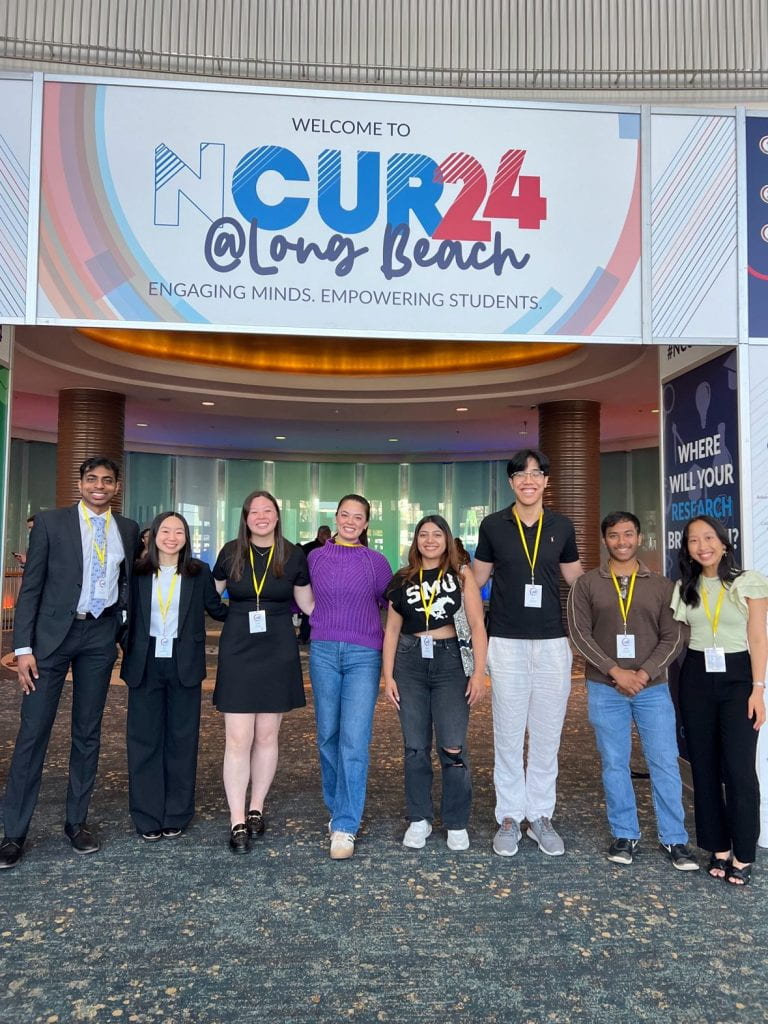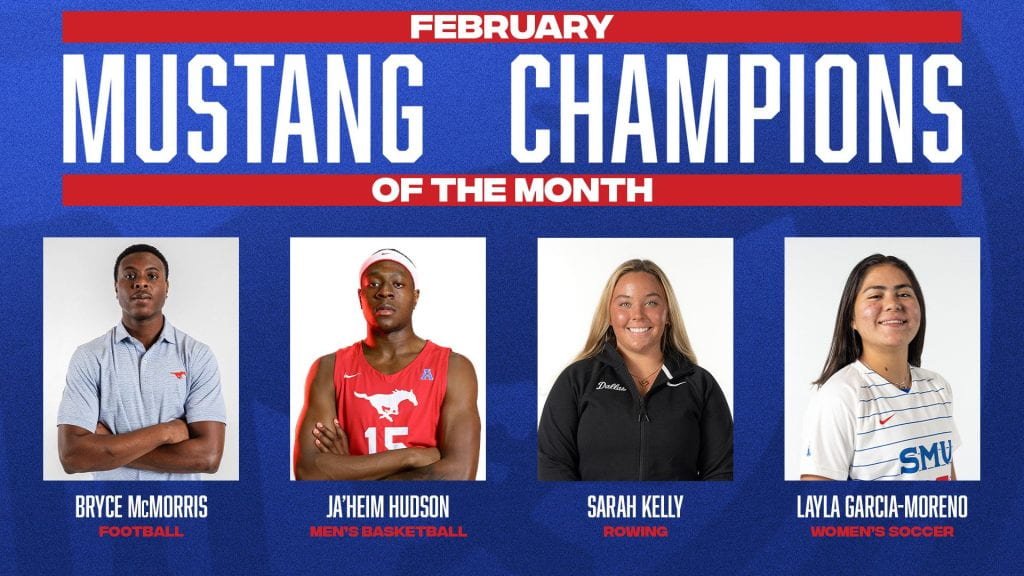Assistive technology helps all students – Part 2
Assistive technology can enhance the academic life of neurodivergent and neurotypical students alike. In part 1, we touched on text-to-speech software and browser extensions that make Canvas easier to use. If you missed it, check it out! Here in part 2, we’ll take a look at mindfulness software and AI. Recent, long-term scientific studies suggest […]
Excellence in Mentoring Awards
At the Undergraduate Research Lunch on Thursday, April 18, the Office of Engaged Learning announced the 2024 Excellence in Mentoring Awards. 2024 Recipients: Dr. Mark Allen Senior Lecturer, Temerlin Advertising Institute (Meadows) Mentees: Tyler Chapman ’25, Morgan Martinez ’24, Ross Yenerich ’25 Dr. Jessie Zarazaga Clinical Associate Professor, Civil and Environmental Engineering (Lyle) Mentees: Kristen […]
NCUR 2024: Let’s Hear from the Participants!
Congrats to (L-R in group picture) Anish Senthilkumar, Karen Lin, Elisabeth Hood, Anna Su, Sadikshya Sitaula, Kevin Nguyen, Jonathan Thomas, Vivian Thai on presenting at NCUR 2024! These eight SMU students had the incredible opportunity to present their research and creative work at the National Conference for Undergraduate Research 2024. They traveled to California State […]
Mustang Champions Announced for March 2024
SMU Athletics and the Academic Development of Student-Athletes (ADSA) have selected four Mustang Champions for the month of March! Let’s meet the four SMU Mustangs that are reaching for new heights personally and academically during this semester: Leif Bouwman (Men’s Swim & Dive) Leif isn’t just keeping his head above water in the pool – […]
Big iDeas Spotlight: Ryder McNeal
The invitation for Ryder McNeal ‘24, to dream big was prompted four years ago by a simple yard sign on Dallas Lawn for the Big iDeas Pitch Competition. This moment clearly made an impression, too, because McNeal, stayed intrigued about Big iDeas throughout his journey at SMU. However, it wasn’t until the fall of his […]
2024 Extra Mile Award winners
Every spring for the Hilltop Excellence Awards, Disability Accommodations and Success Strategies‘ student organization, Students for New Learning (SNL), presents two or three instructors with the Extra Mile Award. This award recognizes teaching excellence and sensitivity when working with neurodivergent students. This year, SNL has recognized: Pamela Corley, Department of Political Science; C.J. Enloe, World […]
Highlighting our February Mustang Champions
Our second round of Mustang Champions has been announced for the Spring semester! Mustang Champions are nominated each month, by ADSA and athletics staff, for recognizing athletes that are working to perform at their highest level! Whether by improving their academic or athletic performance, embodying the S.P.I.R.I.T of SMU athletics, or student-athlete success initiatives. Sarah […]
ADSA Sends Second Academic Feedback Request for Spring 2024
The Academic Development of Student-Athletes (ADSA) program at SMU is committed to collaborating with faculty to ensure student-athlete success. To achieve this, ADSA solicits feedback from instructors twice per semester. This feedback aligns with critical academic milestones, including Early Progress Reports (EPRs), Mid-Term Progress Reports (MPRs), and the final withdrawal deadline with a “W” grade. […]
Assistive technology helps all students – part 1
We at Disability Accommodations and Success Strategies (DASS) see how invaluable assistive technology is in the life of a student with a disability, but we want to share how this tech can help anyone. In the first of a two-part post, we’ll look at the text-to-speech software Kurzweil, and browser extensions that make Canvas more […]







